#3 November 1911
Photo
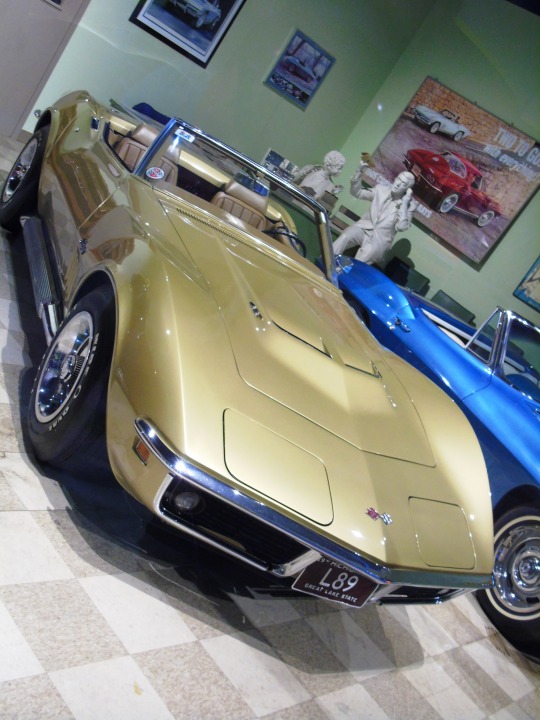









Chevrolet officially entered the automobile market on November 3, 1911, in competition with the Ford Model T.
#Chevrolet#automobile market#3 November 1911#anniversary#US history#engineering#Torrington Cruise Night#original photography#travel#vacation#USA#Bowling Green#National Corvette Museum#Chevrolet Corvette#Chevy#Chevrolet Tahoe#Chevrolet Suburban#Chevrolet Camaro#Chevrolet Nova#Chevrolet Impala#outdoors#indoors#tourist attraction#landmark#Wyoming#Kentucky#California#South Lake Tahoe#Yountville
40 notes
·
View notes
Text
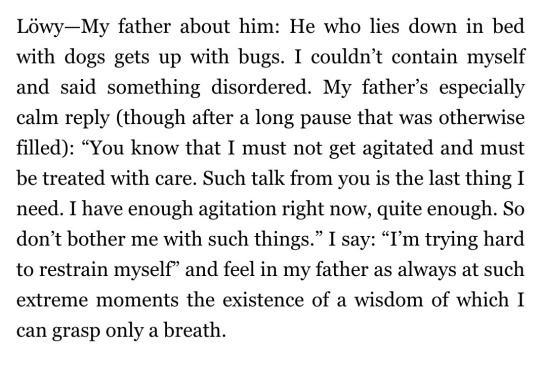
— November 3, 1911 / Franz Kafka diaries
#literally what is this man's problemmm#November 3#november#1911#franz kafka#daily kafka#franz kafka diaries#hermann kafka#quotes#alt text
158 notes
·
View notes
Text
Swan Song
Chapter 1: Taking Flight
Summary: In preparation for your debut as Odette in Swan Lake, you encounter a few bumps in the road. Little do you know this is just the start.
Pairings: TF 141 x Reader
Word Count: 5.1K
Warnings: Eating Disorders, Toxic Beauty Standards, Creepy/Unwanted Behaviour, Period-Typical Attitudes (1910's), Innacurate Translations.
A/N: I'm not well informed about ballet, I have never danced it before, so I apologize for any inaccuracy regarding terminology. Also, the story is set mainly in Russia, so the reader is presumed to be of Russian origin.
MASTERLIST Next➔

[November 11th 1911, The Bolshoi Ballet Academy, Russia]
"1 and 2 and 3 and 4!”
Your eyebrows furrow in concentration as Mr. Lenkov begins to play Tchaikovsky’s Swan Lake Suite, Op. 20a: I. Scene "Swan Theme" for what feels like the sixth time this hour. His nimble fingers dance across the ivory keys once again as the composition presumes its macabre melody.
To say the last few weeks have been stressful would be a dire understatement. Since taking up the role of Odette in Autumn, you’ve yet to recall the last time you’d had the pleasure of succumbing to the sanctity of slumber, nor rest altogether for that matter. From dawn to dusk, you’ve found the studio becoming a second home to you; like an ever-so gracious host with a tendency for passive-aggressive hospitality, who coaxes you from the front door in promise of warm tea and a place to rest your head, insisting you stay "just one more hour". You know better, well at least you think you do, because beyond the studio door you know there’ll be no rest awaiting you, only relentless recital. Still, you don’t look back as you accept its welcoming embrace. Because-
Anything but perfection would not suffice. You see, back-breaking discipline; impeccable precision; artistic competence; meticulous dedication, it’s nothing new to ballet and in turn, it’s nothing new to you, either. To be a ballerina means to surrender yourself to the artistry, and let your body become its mindless muse.
The Ballet industry is an anomaly compared to other artistic sectors. Unlike others, it subverges from the ideals of ‘beauty in the eye of the beholder’. Conformity is key. There are strict standards to be met and an unquestionable quota to be completed. Anything but, will not do. It disregards the need to sugarcoat its shallow requirements; skinnier, sharper, prettier, thinner; if it fulfills the requirements, it will suffice.
Image is everything. It’s a shallow, superficial sentiment that directors set upon budding ballerinas like hounds to hares. From day one, they plant it into the impressionable minds of aspiring dancers. Uncontrollably, self-doubt sprouts like a stubborn weed. Each off-hand comment or direct dig, whether it be about a girl’s weight of en pointe form, encourages the festering parasite to root itself deeper into her mind. Then she grows older - it’s too late - and the parasitic thought has poisoned her once innocent outlook on life and has rotted it right to its roots. For the rest of her tragic life, the girl will only know the number on the scales, the image in the mirror, and the misery in her mind.
You’ve seen it happen to others. You’ve seen it happen to you, because-
Ballet has ensnared you - mind, body, and soul. Over the years, you’ve felt its callous claws dig deeper and deeper into your flesh, leaving scars so severe - both physically and mentally - sometimes the pretty pink ribbons you adorn your feet with prove futile in the bid to cover them. Prodding and poking and probing; fingers jabbing mercilessly into your sides, accompanying a doubly ruthless "you'll need to lose this extra weight if you want a spot on my stage". For a sport so vain, you ought to think it would go easy on its victims. A session of self-reflection proves otherwise.
You learn to bear and grin through it all. You don’t have much of a choice anyways. After all, many before you have suffered the same, and those who come after you will too. Because after many years of being a ballerina-
You learn to see beauty in the pain.
The blood you bleed makes the red roses you receive at curtain call worthwhile; the sadistically sweat-inducing masterclasses make the shining smiles and standing ovations from awestruck audiences worthwhile; the tears make the champagne chutes you get to drink at the expense of your company worthwhile. You chase these highs like you do with stardom.
All you've ever dreamed of since a little girl was to be a ballerina. Perhaps, it was the beautiful dresses a child of your class could only dream of back then, or how pretty the woman on the front page of your father’s newspaper looked posing on the tip of her toes. You don’t know for certain what exactly it was that enthralled you with it all. Sometimes, you wish you had never boarded that train to Moscow, never bothered with all that came with being a ballerina. It’s a selfish and self-deprecating thought, for you know if you were to stay on that homestead, there was an imminent chance you would have succumbed to the troubles of poverty you had faced back home. Admittedly, there are times you miss your life before coming to the city. None can be done about that, however.
Now, you have to push your body to its limits and beyond. Daily, you trespass boundaries you had once believed your body did not possess the ability to, reciting the same sequences endlessly, over and over again, until you physically can’t pursue your practice further that day. Even then, you find yourself persevering through the pain and fatigue; limbs heavy like lead; a mind strong like steel. If you knew your efforts were futile in the bid to rid yourself of any flaws in your dance, you would be wrong because-
Ultimately, you knew no matter how much effort you exerted, the Dance Principal; Ballet Mistress; the reputable Madame Orlova would not miss a single thing.
For decades, word has circled Moscow of the cold-hearted, quick-witted, sharp-tongued old woman who ran the prestigious academy with an iron fist. It was just your luck that she had taken you under her wing as one of her pupils. You dare say she had taken a liking to you, though, she did have a tough way of showing her fondness onto others.
Never a day was there without some sort of mistake to be mended by her recognition. At times you think God had cursed her to be forever unfulfilled in her outlook of life. The others in the Troupe seem to think so too.
You dread to think of how much Mr Lenkov’s fingers must be hurting from playing the same melody over and over again for this past hour. It wouldn’t surprise you if the composition begins to haunt your dreams like a creaky, broken music box. You’ve never had the pleasure of owning one, though you had seen one in the window of a repair shop one time and-
And, as the Ballet Mistress shouts at Mr Lenkov to cease his playing, you know she has once more found a flaw in your dancing.
The symphony stops abruptly with a garble of incoherent notes before it can reach its crescendo. Inwardly, you sigh.
"No, no, no!" She scolds.
Her boney fingers rub feverishly against her temple in frustration. Rising slowly from her chair before you, her walking cane thumps anticipating against the studio’s oakwood floor as she ambles towards you. Wrinkled eyes bore into you; you struggle to withstand the urge not to writhe under the intensity of her stare.
"Your arms,” She begins slowly, her gaze raking over you in scrutiny, “They are stiff.”
“From the shoulder to the fingertips,” She gestures with her hand down the length of your arm as she speaks. “It must flow, like the wing of a swan.”
She uses the moment of silence as you take on the command to survey your form, prodding and poking your stance to adjust it to her liking.
“Do not forget this.” She finishes.
"Yes, Madame Orlova," You nod in acknowledgment, wincing slightly each time her finger jabs into your shoulder blades and readjust your position to better suit her expectations.
She huffs a breath in what you can only presume is somewhat satisfaction, signaling for Mr Lenovo to resume playing.
“Again!”
The song resumes its somber sound, and you take heed to the Ballet Mistress’ words. Flowing from your shoulder blades to your fingertips, you encapture the essence of the White Swan; melancholy in her mourning of a lover whose heart he had promised to another. She is vulnerable in her virtue, and she shows that in her final flight. Odette longs for the skies, for an escape from the betrayal of who she had held dear, but her wings fail her. In desperation, she flexes and flaps her wings, but alas, she cannot take flight. And so-
You spiral in a presession of slow spins, arms portraying the anguished attempt the Swan Queen takes to take flight for the final time before decelerating into a despairing descent as Odette. The tune tumbles to its end from beneath Mr. Lenkov’s fingers as you complete your practiced plummet to the studio floor, encasing your body with your arms the wings of the white swan, as the grief-stricken creature takes its final breath.
You raise your head to look at Madame Orlova.
And, for the first time in your decade-long enrollment at the Bolshoi Ballet School, you think you see the infamously stone-faced stone-hearted ballet mistress smile.

It's a cold evening in Moscow tonight. The winter winds thrash ferociously at the loose and unraveling threads of your scarf. Whilst it does little to protect you from the frigid frost lingering in the air, you wear it anyways as any warmth you can garner to combat the icy environment is, in your eyes, worthwhile.
Snowflakes dust your hair with specks of glistening white, gathering upon the crown of your head where you have neglected to put on a hat. They tickle your nose and gently brush against your rosy cheeks as you tilt your head back. Your face turned towards the sky; watching as the snow twirls and tumbles from the clouds above, gradually blanketing the ground ahead in a pristine carpet of soft white. It crunches as you walk towards the theatre, leaving footsteps on the once-untouched landscape. You take extra caution not to slip on any hidden ice - an injury is the last thing you needed on a day as imperative as this.
Somewhere in the far distance, the Kremlin bells ring.
Thirteen mighty chimes thunder throughout the city. You feel the ground rumble in response beneath your feet - a reminder to hurry.
Rushing up the snowy steps of the Bolshoi Ballet Theatre, you quickly let yourself inside in an attempt to escape the chilling temperatures of the Moscovian evening - and to avoid running behind schedule.
The warm air inside greets you welcomingly. You eagerly pull off your gloves in its presence to soak up the heat it has to offer. Slowly, you begin to regain feeling into your fingers. Sighing a relieved breath, you make your way backstage as the marble floor of the foyer echoes noisily beneath your shoes.
There, you receive a not-so-calm yet begrudgingly familiar greeting.
Pre-performance is usually like this; congested backstage corridors; a cacophony of frantic demands and directions; boxes of overflowing props and costumes rushed up and down the hall; the deafening pounding of ballerinas breaking in their pointe shoes; dim lighting making it near impossible to navigate. However today, with your debut as the company’s newly appointed principal dancer just hours away, it feels even more nerve-wrackingly overwhelming.
You brace yourself as you get swept away in the havoc of opening night, tangled in the rambunctious crowd as it traverses through the labyrinth of backstage passageways.
Despite the absurd amount of people crammed in corridors unable to withstand even a fraction of their current capacity, you miraculously manage to maneuver your way to the dressing room; elbow-to-rib style, ducking under boxes and weaving past those racing in the opposite direction.
Relief hits you as you swing open the dressing room door, closing it quickly behind you as your eyes blink rapidly to adjust to the bright lighting inside. The much more quieter, yet seemingly livelier chatter of friendly conversation and girlish giggles encompasses you as you move further into the dressing room. You shrug off your coat, laying it to rest on the coathanger and take your seat in front of your dresser.
Tranquility seeps into your bones as you slouch against the chair’s backrest momentarily, soaking up the opportunity of rest no matter how short-lived the moment may be. Mentally, you take the moment to prepare yourself for the evening, and all the chaos and calamity it is sure to bring.
Sighing, you straighten yourself up in your seat, glancing at your reflection in the mirror as you do so.
"I didn't know you had a secret admirer.”
You don’t turn around as the voice chimes up from behind you. You of all people know better than to entertain her playful antics.
The voice reveals itself from its lurking in the background, resting her chin just above your collarbone and draping her arms over your shoulder.
Your eyes meet hers in the reflection. She grins back at you.
“Valeria.” You sigh, patting the hand resting around your shoulder. “It’s good to see you.”
Valeria, crowned tonight’s Black Swan, is one of the company’s longer-serving principal dancers and has self-appointed herself as your tutor and friend as of late. Graciously, she has taken you under her wing these past couple of months as you have gradually adjusted to your newly bestowed title, joining her amongst the Bolshoi’s most prestigious ranks.
“You too,” She smirks, a little too suspiciously for your liking, pecking your cheek in greeting before returning to her seat at her vanity next to you. “You too.”
You begin to rummage through your stage makeup, tilting the mirror toward you so you can better see, before laying out your needed products on the desk space. You pay no mind to her mischievous staring as you do so. But, as you have learned over your time acquainted with Valeria, nothing can deter her from getting what she wants. And right now, that is to find out who this supposed ‘secret admirer’ is.
"So tell us then," She drawls teasingly, "Who's the lucky boy?"
The edge of your desk presses uncomfortably into your side as you turn to give her your attention. For the time being, anyways. You yourself are somewhat curious as to what she is talking about. But the sooner you can resolve this suppositious accusation, the sooner you can resume to the real issue at hand - getting ready for Swan Lake.
Confusion stirs at her question, and you tilt your head to the side, urging her to explain further.
A ribbon-wrapped gift box is pushed toward you. You watch on, confused.
Valeria’s legs swing idly back and fro as she gazes at you expectantly. The corners of her lips tug further into a grin at the silence that ensues and at the completely dumbfounded expression on your face. When you give her no answer, her Cheshire-cat-like grin falters.
The girls around you giggle, peering over from their makeup stations to indulge in the drama unfolding. Valeria shoots them a look from over your shoulder, one you cannot decipher, but it quietens them down.
“For me?” you ask doubtfully, slightly stumbling over your words as you take the generous gift into your hands. “Oh Valeria, you shouldn’t have-”
“Not from me.” She huffs.
“I don’t understand,” you mumble, eyes scanning over the gift as you look for a label, a note, a letter, anything that may reveal the gifter’s identity. “Who could this be from?”
She shrugs indifferently, turning to focus on her reflection in the mirror, transfixed on getting the edges of her lipstick just right.
“The girls who were here before me said it came delivered to the dressing rooms earlier this hour-” She smiles at her appearance, appreciating her flawless makeup in the mirror. Placing the lipstick tube down with a quiet thump, she turns to focus her attention on you once more.
She pokes a finger at you in playful accusation. “-Asking for you specifically!”
It’s your turn to shrug your shoulders, unable to give her the answer she craves, for what reason, is beyond you.
She eyes you incredulously, before returning her attention to her mirror seemingly unable to neglect her reflection for just a moment longer.
“Well,” She gestures toward the ribbon-wrapped gift with her free hand, playing an unbothered facade. You know full well she is practically itching to uncover this mystery. “Are you going to open it?”
Your eyes dart between her and the suspicious box, almost expecting this to be some sort of ruse, perhaps she had given you a jack-in-the-box and was waiting for you to get the fright of your life; her idea of fun.
Hesitantly, you begin the unravel the sheer ribbon keeping the box from opening. The fabric rubs soothingly against your fingertips, a luxury fabric you have not had the experience of touching before. It was clear that whoever had purchased this was of a wealthy background. Perhaps, you think, you could make this into a bow to wear.
You don’t know what you were expecting when you lifted its lid, but you definitely were not expecting a pair of .
“Aye chingao!” Valeria startles as she leans over your shoulder to get a better look.
Nestled between a blanket of draped deluxe fabric, a pearlescent pink, almost winter-white, pair of the most exquisitely crafted pointe shoes lie. You fail to restrain the exasperated sigh of awe at the sight, carefully grazing your fingertips over its silky satin finish as if the slightest touch could possibly damage them. You can confidently say, they are the most beautiful gift you have ever had the pleasure of receiving.
“No secret admirer,” she says.” Valeria quirks an eyebrow up at you.
"Don't be ridiculous, it's probably just costuming.” You dismiss her far-fetched conspiracies, though, you find it hard to draw your eyes away from the pair of shoes, and the fact that this had definitely not come from the costume department. So who had sent you these?
"Ha, as if Mr. Baryshev would ever allow the budget given to costuming to be used for anything but lining his own pockets!” She laughs bitterly.
“I’ve been-” Valeria exhales out a frustrated breath, “-trabajando como un burro to afford the means to get wear this!” She growls, her hands gesturing to the coal-coloured feathered fabric of her intricate bodice and tutu.
You open your mouth to give her your consolation before a knock comes to the door. You, Valeria, and the rest of the room quieten into hushed murmuring - just for a moment. Then-
“On in 30, Ladies!” A gruff voice hollers from the other side of the door.
The room erupts into chaos.
A tsunami of frantic ballerinas surge forward towards the row of dressers, crashing against each other like the tides of a raging sea you had heard many-medal adorning men recount about in tales of some distant land. The only redeeming thing about conducting post-performance business is the stories and tales you overhear; the rest, you are not so keen on.
You take the distraction in stride, shoving the pair of shoes more like semi-worn in pointe hand-me-downs from costuming somewhere under your vanity, and replacing them with your newly acquired gift.
“You’re going to wear them?!” Valeria hisses incredulously.
You glance at her sideways, smirking back at the priceless expression of amused disbelief on her face.
“Well, they’re shoes, aren’t they?” You jest, grinning at her mischievously. “It would be a shame not to.”
She shakes her head in mock-dissappointment, haphazardously stuffing her stage makeup in its designated drawer before firmly slamming it shut.
“I fear my mischief is rubbing off on you too much.” She mumbles as she looks up at you, feigning a tone of dismay, only to be betrayed by the growing smirk on her face.
“Well,” She smoothes her hands over her slicked-back bun of cropped raven hair, "I'll see you out there."
You give her your goodbyes as she pats you on the shoulder, rising from her chair and making her way toward the dressing room’s door.
“Don’t let the Director find out,” Valeria whisper-shouts from over her shoulder. “You know what he’s like.”
She ushers the remaining lingering corps-de-ballet girls out of the changing rooms, winking at you as she closes the door gently behind her.
You listen as the chatter slowly retreats from beneath the doorframe, Valeria’s distinct, accented laughter mingled with that of fast-paced Russian retreating down the echoey corridor ‘till you could hear it no more. A serene silence hugs the now-semi abandoned dressing room; those, including you, who aren’t to appear until later acts remain, a more pacific atmosphere stirs, with subdued gossiping, softer laughter, and a more slowing-encroaching sense of time.
You slump in your chair.
You have a long evening ahead of you.

The rear of house is relatively quieter now.
You can no longer hear the lively chatter associated with the pre-performance buzz, only the occasional hushed conversation resurfacing through the suffocating silence as people pass by. Walking backstage is always an awkward feat, your pointe shoes make an unpleasantly loud noise against the cold concrete floor with each precarious step you take.
You had felt bad for having to break them in; they were an extraordinaryly well-crafted pair of pointé shoes, they fit perfectly too, and you were certain the price tag was even more extravagant. You still hadn’t resolved the identity of the mystery gifter, but you’d make sure to thank them profusely for their kindness. For now, however, you have a debut to make.
Your feet thump rapidly as you semi-rush toward the entrance to the left wing. The further you near, the more people it seems are gathered in anticipation for their appearances onstage. The conversation is greater here than that of in the deeper bowels of the theatre where the dressing room had been. Mingling herds of ballerinas and dancers lean idle against the walls, stretching in preparation for their scenes, and chatting amongst themselves, but done so in more gentle, lower tones so as not to alert the audience of their presence a mere wall away.
They regard you with reassuring smiles and words of good luck as you briskly waddle by; you reciprocate them with a short-but-sweet smile.
The music grows in amplitude as you enter the left wing officially; the once gentle thrumming is replaced with an all-encompassing eruption of expertly strung-together instruments. The welcoming embrace of the song is quickly diminished though, much to your dismay because-
The rafters here have always given you the creeps. With no help from Valeria either, who divulges in gossip of the ‘ballerina’ who had been ‘crushed to death’ by a poorly-secured light fixture on the theatre’s proscenium arch each time she catches you gazing nervously upwards at the looming space. You know it’s mainly just the technicians who lurk up in the rafters, commandeering light cues and stage transformation sequences as the ballet progresses.
‘You have nothing to fear’, you admonish yourself.
Still, that doesn’t stop the hair on the back of your neck from standing up as you approach the left stage-side.
Your presence goes unnoticed for not even a second.
Someone speaks your name in a hushed whisper.
You peer over your shoulder at the source of the sound; the silhouette of a stout-statured man emerges from the left-wing doorway. He seizes you suddenly by the shoulders before you even have time to recognise the overly-touchy-friendly Mr. Ustrashkin.
You stagger at the sudden force with which he embraces you, regaining your balance with an awkward squeak. It is only then do you see the disconcerted look that his face has taken on.
“Mr Ustrashkin?” You begin hesitantly. “Is something the matter?”
“Walk with me, dear.” He requests, but he has already pulled you into motion with the firm grip of his hand on your shoulder.
The two of you trail off to the side to make way for the group of pas de corps, and for the privacy of what you can only assume to be bad news. The ballerinas smile respectfully at you, lowering their heads slightly as they account for your company before skittering off, their ghostly white tutus fluttering by behind them like swirling snowflakes.
When the last of the dancers had passed by, Mr. Ustrashkin speaks again. You take the small queue of silence to compose yourself exteriorly for what is to come.
“Something..." He stalls, theatrically contemplating the correct word to use before resuming. "...unexpected came up within these previous hours. A true shame it is, but Fyodor, your dance partner, has sustained an ankle injury. As you can understand, he will be out of commission for the foreseeable future, and unfortunately is unable to perform with you tonight."
Your heart sinks. It collapses from your chest cavity like a marionette doll on snapped strings; as its puppet master surveilled with cruel glee from above. You wonder what you had done to anger God, for him to administer such a thing onto you. On today of all days too.
“Oh, um, I-” You stumble over your words in a tangled array of shock, panic, disbelief and uncertainty.
“None of that now, little swan.” Mr. Ustrashkin tuts, almost as one would scold a misbehaving child.
You recoil at the unwanted nickname, but are too overcome with internal panic at the newly arisen situation to pay it much mind. Saying anything anyways will get you in trouble, and you have climbed too far into the good graces of the executives of the company to fall out of favour for something so insignificant.
You struggle to maintain your composure, hanging on the thread of internal and external unbridled alarm. You bite the inside of your cheek to withhold any curses from escaping your mouth.
‘On all days this could have possibly happened on.’ You mumble to yourself mentally.
“So, if Fyodor isn’t dancing tonight..” Your eyebrows scrunch up in confusion, eyes trailing from Mr. Ustrashkin and the conversation at hand to the semi-concealed view of the stage. “Who is dancing Prince Siegfried onstage as we speak?”
Swan Lake has been going for around an hour by now, but with your appearance not until the second act, you needn’t be in as much of a rush as those in the first. You had spent that time responsibly; the majority of which was in the dressing room ensuring the costuming was to standard and ogling over the anonymous gift. Much to your displeasure, that also meant you didn’t have the pleasure of seeing everyone off at curtain opening, and you hadn’t been able to catch a glimpse of this ‘Mactavish’ Mr Ustrashkin had been singing his praises about to you.
"Do not fret that pretty little head," The plump man quips. Mr. Ustrashkin pats your back, presumably in an act of reassurance, but the force which he uses almost sends you stumbling forward. "His understudy, Mactavish, has taken up his role."
“Mactavish?” Your head tilts to the side as the syllables of the foreign-sounding name roll off your tongue with a questioning implication.
“Oh yes!” He startles with a cheery smile. “A wonderful dancer through and through. We scouted his talent in London and had him transferred from The Royal Ballet to dance for us instead.” He rambles on in recollection. “Though the two of you aren’t properly acquainted yet, I’m sure he’ll be substantial as a dance partner in Fyodor’s absence.”
All you can do is nod your head absentmindedly, hoping to be relieved of his unwanted presence. And, like all men are, his attention is quickly drawn to another.
A loud laugh barks out from across in the right wing.
“Valeria!” The now-agitated man growls lowly, his teeth grinding together as he storms toward her as quickly as his little legs can carry him.
‘So that’s where she went,’ you think, half-bemused, half-concerned. You also thank her in your head for unknowingly getting you out of a conversation you no longer had any interest in being involved in.
Rolling your shoulders to relieve some tension that had been building up, your eyes search diligently for someplace to stretch before your presence on stage is needed. Finding one, you make sure to apply an ample amount of rosin to the bottom of your shoes before skittering your way over.
The minutes pass by neither quickly nor slowly, more like a muddled mixture of the two. Your body moves without control, years and years of dedicated practice leading up to this much anticipated moment allowing your body to memorize the moves. Your thoughts, however, are the fore-focus of your attention. They rumble through your mind like a blinding blizzard, burying any logical thought with a suffocating, unmoveable barrier of bleak snow and amounting stage fright.
The Pit Orchestra unleashes Tchaikovsky’s Swan Lake, Op. 20, Act 1: No. 9, Finale Andante’s crescendo upon the awestricken audience as such Zeus would do to the land below Mount. Olympus with his thunderbolts. If you dare a glance, you may manage to see Mr. Lenkov strumming his harp melodically, or his musical protégé he can’t help himself but boast about day in-day out.
The floor beneath your feet vibrates as the composition reverberates deafeningly throughout the auditorium; you would struggle to believe the crystal chandelier that looms overhead is not swinging violently nor the champagne glasses the aristocrats’ cradle has not shattered at the absurd volume. Though, it could just be the nervous shaking of your legs.
You catch fleeting visions of the dancers on stage; their shadows flickering in and out of view like the dimming flame of candlelight. Your thoughts are once again drawn back to Fyodor’s supposed understudy. Not once had you had a recital with him, and so you could only hope he was adequately practiced for his role.
The melody of Act 1’s final act concludes with the triumphant trill of the violin ensemble. The audience erupts into an oscillating ovation; cheering, clapping, whistling; at a volume so loud it could rival its predecessor. Your doubts about Mactavish’s adequacy are quickly disproven.
It only brings a sliver of comfort, however.
You linger in the shadows for a moment, trembling fingers brushing hesitantly against the fabric before you. Then, cautiously, you peer out from behind the safety of the illustrious velvet curtains. Your jittery hands fiddle with their golden tassels as you gaze at the exceedingly large audience. The auditorium of the theatre had never been so full.
You try not to let the sheer amount of people overwhelm you; a thousand thousand faces staring stagebound.
You fail.
And as the announcer commences the beginning of tonight's performance, you also fail to notice the man watching you from across the other side of the stage.
“Bolshoi Ballet proudly presents Swan Lake!”

#swan song#call of duty#tf 141 x reader#ploy 141 x reader#vladimir makarov x reader#valeria garza#simon ghost riley x reader#simon ghost riley x you#john soap mctavish x reader#john soap mactavish x you#kyle gaz garrick x reader#kyle gaz garrick x you#john price x reader#john price x you#crossposted on ao3
66 notes
·
View notes
Note
could you explain marie nelson to me... i know that he's tragic and also a misogynist and that's kind of all
well you've got the basics but let's get into the details [cracks knuckles]

edward william nelson was the shore party's biologist, counterpart of lillie who stayed on the ship. like lillie he had been educated at cambridge, however unlike lillie who barely scraped a degree in the end, nelson dropped out lol. he went to work at the plymouth marine biological association, which is where he was when he was hired by wilson (presumably via cambridge connections) for the expedition.
he wasn't as rich as cherry or oates but he came from a landed gentry background, his maternal grandfather was a major landowner in the shetlands in scotland and was, if you believe this random page on the internet, descended directly from King James V of scotland... and his dad was a big deal microscope guy.
anyway by the time nelson was on the expedition his initial nickname was "The Immaculate One" because he was (at first) always wearing a clean collar, and then at some point he became almost universally known as "Marie," short for "Marie Ducas" or "du Car" which nobody ever bothers to explain.
sometimes he was also known as "Antonio" or "Brontë" (that last being a reference to Lord Nelson) and griff often called him "Marie du Car Bronte Antonio Nelson" or another combination of multiple names.
silas wrote in his diary that he "had a taste for gin and bridge" and lots of people remarked on how he wouldn't get out of bed in a timely fashion and was always late to breakfast.
he was kind of seen as dissolute in general or a bit of a slacker. kathleen scott remarked at one point that he "spends all his time on shore being a man about town, which makes him look exceedingly tired" but really i think that was just how his face naturally looked.....

his job at Cape Evans was overseeing his Biological Hole (that's what he's doing in the pic up top) and identifying new antarctic species, taking temperatures, and measuring currents. he had a telephone wire run out to the little igloo he built on the sea ice, and often had company in the form of griff or cherry or whoever wanted to help him keep the ice open and unfrozen at the hole.
he did plenty of science, but that kind of fades into the background in the diaries because most people if they're talking about him at all are mainly giving a running commentary on how much he liked to argue.
his main axe to grind was women's rights... griff seemed to take great joy in calling him a "miserable, cynical reactionary" and goading him into arguments which sometimes descended into pitched physical battle.
from griff's diary, may 30 1911:
Marie Deb & I had a frightful cag in our boudoir about Women’s Suffrage. He is engaged & declares if his wife wanted to exercise her vote (even if she gets one) he will lock her up!
november 3 1911:
We have great cags at meals now. Simpson Deb & I are progressives & Liberals. Nelson is a thorough Reactionary Conservative especially re women & vote & education. However as he said he wished he were a woman (with £500 a year income) we guessed he was abnormal!
nelson probably did the least sledging out of anyone during the first year, not going on a single long-haul trip (even simpson went out on a short spring journey). he mostly just hung out at his igloo i guess? and got really into calculating navigation for fun. also apparently he was the best at chess in the whole hut.
he stayed on for the second year, and did go out sledging on the Search Journey:

there is some great stuff about his midnight poetry and weird moon obsession during the second winter in @worstjourney's very good post here.
i'll also add that it was pretty harsh on everyone else to have Maximum Marie Exposure with no tempering force of griff to allay it.
nelson did contribute heavily to the much-reduced and mildly pathetic Volume IV of the South Polar Times, which featured griff's offcuts from the prior year, deb's illustrations, and poems from nelson including a parody of walt whitman about billiards:
This is the song of billiards:-
The tight stretched cloth of green, the serried arches,
The cue - faking the cue, the protests from the players,
The pyramid, the British Pluck, the Chinese fluke,
The click of striking balls, the rattle in the ditch,
the grin of joy.
most of the expedition scientists went home on steamers from NZ, but both nelson and lillie stayed on the terra nova as she took the long way round cape horn, in order to do more trawls and marine science.
nelson also took a job as second mate—it was definitely unusual for a scientists with zero navy/sailing experience (except the voyage down) to suddenly become an officer of the watch, but pennell trusted him, and seemingly that trust was not misplaced, as pennell wrote in his diary about how well he took to the job, and to atkinson about how he was by "far & away the most brainy person in the ship."
he got married to the woman he had been engaged to, violet thomas, after returning from the expedition. their only child, a daughter, was born in 1915, but by then he was serving in the royal naval division at gallipoli and then france. his war story is straight up wild and i recommend reading from ice floes to battlefields by anne strathie if you want aaalll the deets. but basically he saw a lot of action, served alongside rupert brooke (among other notables) and came out the other side relatively unharmed... physically.........

after the war he went back to the plymouth marine lab, and was supposed to be working on expedition results, but didn't do much of that.
in 1921 he left his family in plymouth to take a job in scotland working in a lab for the fishing industry, and in 1923 his wife successfully sued for "restitution of conjugal rights" which basically means the court ordered him to return to her....
but that did not end the way she wanted 🙃


shit was sad... he was found with poison injected directly into his leg.
i think there must have been a specific legal reason why the death was declared an accident—maybe something to do with receipt of military pension for the widow? but it obviously was very much on purpose. for whatever reason the thought of having to live with his wife again was so intolerable to him that death was preferable.


so thus ends the Ballad Of Marie Nelson.... here is what deb had to say about him and lillie in 1927, writing to JJ Kinsey:
You heard of Marie Nelson's tragic end no doubt, but I'm inclined to think it was as well. Poor old Lillie is in less happy circumstances, the last I heard of him was that he was never likely to get out of Bedlam, a rather ghastly end up to poor old "Ooze's" brilliant promise.
but much like lillie, nelson's end can't be blamed on his experience in the antarctic as it seems he was relatively content there. occam's razor dictates that A) he clearly had Problems before and B) wartime trauma made those problems worse.
the tragic sequel to this tragic story is the fact that his daughter, barbara, was 93 when she went on a cruise to antarctica to visit Cape Evans and see her father's laboratory... but she died of a fall while on the ship during a storm before they had even gotten there :(
20 notes
·
View notes
Text
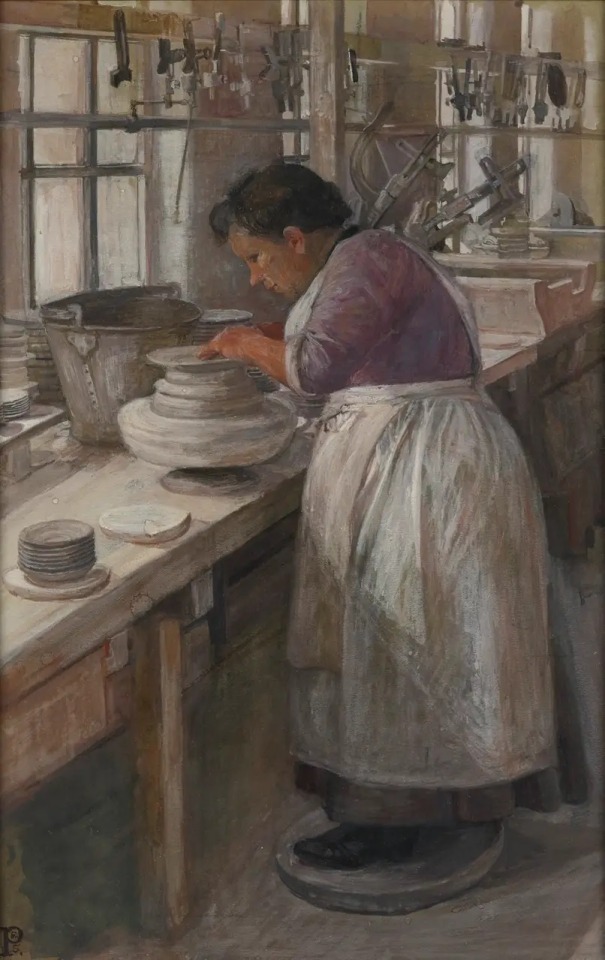
Sylvia Pankhurst - An Old-fashioned Pottery Turning Jasper-ware (1907)
Sylvia Pankhurst’s lifelong interest was in the rights of working women and she made a profound impact on the fight for women’s rights both as an artist and a campaigner. Trained at the Manchester Municipal School of Art and the Royal College of Art, she was a key figure in the work of the Women’s Social and Political Union (WSPU), set up with her mother Emmeline and sister Christabel in 1903, using her artistic skills to further the cause. Pankhurst designed badges, banners and flyers for the WSPU. Her symbolic ‘angel of freedom’ was essential to the visual image of the campaign, alongside the WSPU colours of purple, white and green. As the suffrage campaign intensified she struggled to balance her artistic and political work, and in 1912 she gave up art to devote herself to the East London Federation of Suffragettes, the organisation she founded to ensure that working-class women were represented in the suffrage campaign.
In 1907 Pankhurst spent several months touring industrial communities in Northern England and Scotland, documenting the working and living conditions of women workers. Living in the communities she studied, she painted and wrote about industrial processes and the women who performed them. Her combination of artworks with written accounts provided a vivid picture of the lives of women workers and made a powerful argument for improvement in working conditions and pay equality with men. She painted in gouache, which she found ideal for working quickly under factory conditions. Pankhurst’s detailed account of working conditions and wages was published as an illustrated article, ‘Women Workers of England’, in the London Magazine in November 1908, and as a series of articles on individual trades in the WSPU journal Votes for Women between 1909 and 1911. These highlighted difficult working conditions and the differential between men’s and women’s wages. Her studies of women at work were unusual for the time in their unsentimental observation and their focus on female workers as individuals rather than stock figures in genre scenes, as had been so often the case in British art up to this point. Historian Kristina Huneault has observed that Pankhurst recognised ‘the women’s crucial presence within the industrial arena, their economic agency, their productive activity and their public community’ (Huneault 2002, p.3).
Pankhurst made a number of paintings in the Glasgow cotton mills and also visited the Staffordshire potteries, where she made a group of studies in which she contrasted the working conditions in different factories. As seen in An Old-fashioned Pottery Turning Jasper-ware, she observed how women workers were often restricted to the lower-paid unskilled jobs, working as assistants to the men who performed more skilled and highly-paid operations: ‘In the potteries I also saw the subordination of women workers. A woman was turning the wheel for the thrower, a woman was treading the lathe for the turner: each was employed by the man she toiled for – the slave of a slave, I thought!’ (Pankhurst 1938, p.290.) (source)
71 notes
·
View notes
Text
WORLD WAR I AND THE WIZARDING WORLD – A MASTERPOST
by @potionboy3, @cursed-herbalist, and myself
A compilation of information and useful links we've utilized for our WW1 verse! This masterpost will include canon material, actual history, and plot points we've come up with ourselves. Non-canon information will be indicated, but please note that it will be considered canon within the WW1 verse!
Will be updated regularly!
Table of Contents:
The Basics
The Wizarding War Effort
Wizarding Politics in the 1910s

1. The Basics:
The Muggle World:
World War I (28 July 1914 – 11 November 1918), often abbreviated as WWI, was one of the deadliest global conflicts in history. It was fought between two coalitions, the Allies and the Central Powers. Fighting took place throughout Europe, the Middle East, Africa, the Pacific, and parts of Asia.
The Allies, or the Entente Powers, were an international military coalition of countries led by France, the United Kingdom, Russia, the United States, Italy, and Japan against the Central Powers or Central Empires of Germany, Austria-Hungary, the Ottoman Empire, and Bulgaria. [X]
Useful links:
Interactive global First World War map
World War I, an in-depth video
World War I oversimplified, part 1 & part 2
Infantry Battallions Explained (this is actually a look into the use of Vickers machine gun in history but the graph was useful)
The Wizarding World:
During the war, British Minister for Magic Archer Evermonde was responsible for passing emergency legislation forbidding wizards and witches from getting involved, in an attempt to prevent mass breaches of the International Statue of Secrecy. This did not prevent thousands of wizards from discreetly aiding Muggles wherever they could. Minister Evermonde's position drew the public condemnation of Wizengamot member Henry Potter, which caused a minor stir at the time. Henry's outspoken pro-Muggle views were one of the chief reasons for the Potter family's exclusion from the Sacred Twenty-Eight. [X]
Useful links (there really is very little in the HP canon about this period):
First World War, Harry Potter Wiki
Theseus Scamander, Harry Potter Wiki
2. The Wizarding War Effort:
Most witches and wizards were not directly involved with the war, though their lives were certainly affected by it to varying degrees. While the Ministry passed legislation to forbid wizards from participating in the war, it did not neglect it completely. In addition to the witches and wizards who aided muggles illegally, there were several different programs started by the ministry, such as the Owl Air Force*, Intelligence operations by the Auror Department, and Magizoologist operations (Like Newt Scamander and the Ukrainian Iron Bellies at the Eastern Front).
(*The Owl Air Force might have been an illegal operation but we've chosen to make it part of the Ministry. Canon isn't clear on which it was.)
The Auror Department:
This is part of WW1 verse, and not mentioned in canon.
Volunteer aurors were trained to join muggle armies to make sure there was no illegal usage of magic among the ranks. They were also tasked with gathering intelligence, tracking down dark wizards (and other dissenters), and even infiltrating and spying on the Central Powers.
3. Wizarding Politics in the 1910s
People of Note:
British Minister for Magic: Archer Evermonde, in office 1912-1923
Evermonde took office in 1912, after the mysterious passing of his predecessor Venusia Crickerly. Some certainly suspected foul play, but nevertheless Evermonde enjoyed the trust of the population enough that he managed to push through several legislations, including the ban of wizarding involvement in the First World War.
Archer Evermonde, Harry Potter Wiki
FC: Gabriel Byrne

Head of The British Auror Department: Willard Hartford (WW1 verse canon)
The Hartofrd family had established itself as a family of aurors a couple of generations ago, so it was only natural for Willard to pursue the career. He became Head Auror in 1911. He is the boss of Ares Gaunt and Lunas Avery, among others.
FC: Jim Sturgess
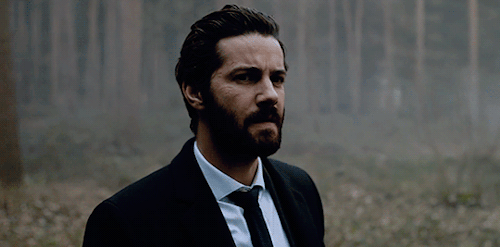
The Supreme Mugwump: Gala De Lange (WW1 verse canon)
Gala served as the Dutch Minister for Magic before becoming the Supreme Mugwump. She is known for her neutrality and insistence upon the non-involvement of wizards in the muggle conlifct.
FC: Famke Janssen

The German Minister for Magic: Waldemar Munter (WW1 verse canon)
lore tbd
FC: Sebastian Koch
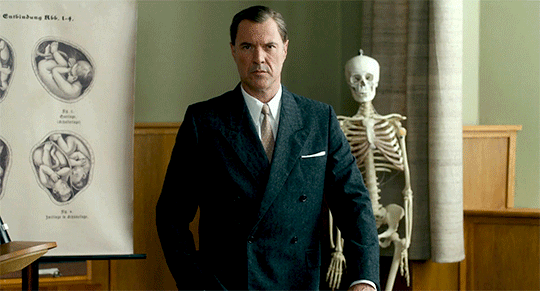
Head of The German Auror Department: Anton Vogel (WW1 verse canon)
During the war Vogel served as the head of the German auror department. He later became the German Minister for Magic and the Supreme Mugwump. He is the father of Alexej Kavinsky. Vogel's motivations are shrouded in mystery and eventually he becomes involved in the plans of the dark wizard Gellert Grindelwald.
FC: Oliver Masucci
Harry Potter Wiki Page

The General Political Climate: (WW1 verse canon)
Across Europe, many witches and wizards were not happy with the war and saw that it was the muggles who were to blame for such chaos and violence. There was a rise in blood-purist ideology, as well as isolationism and anti-muggle sentiment.
Minister Evermonde wanted to keep out of the war as much as possible, and this, if anything, was a reflection of many of his other policies too. He did not wish to effect change, instead he was a traditionalist who was comfortable keeping up the status quo. While he was not overtly blood-purist, he did not do anything to speak for muggleborns, squibs, or any of the groups classified as "creatures".
Mistreatment of minorities & Blood-purism:
As we see the Ministry still being a cesspool of bigotry and corruption in Harry's time in the 1990s, it can be safely assumed that things were not better during the beginning of the century. The radical organization TOWER fuelled the vitriol towards muggles and muggleborns, creating a scapegoat for all the frustration and anger.
TOWER
The Transnational Order of Wizards' Exposure Right is an anti-muggle organization dedicated to toppling the British Ministry of Magic but it operates across all of Europe. They use any means necessary to advance their goals and their existance is known only to few. Their power lies within their secrecy.
TOWER Masterpost (link to be added)
23 notes
·
View notes
Text
RDR
"Red Dead Redemption" is a Western-themed action-adventure video game developed by Rockstar San Diego and published by Rockstar Games. It was released in May 2010 for PlayStation 3 and Xbox 360. The game is a spiritual successor to 2004's "Red Dead Revolver" but is not a direct sequel. "Red Dead Redemption" is the second game in the Red Dead series and is set during the decline of the American Frontier in the year 1911.
The game follows John Marston, a former outlaw, whose wife and son are taken hostage by the government in ransom for his services as a hired gun. Marston is forced to bring three members of his former gang to justice. The story explores themes of loyalty, morality, and the end of the Wild West era as Marston struggles to reconcile his tumultuous past with his family's safety and his own principles.
"Red Dead Redemption" is praised for its open-world gameplay, in which players can explore the vast, fictionalized Western United States and parts of Mexico, either on foot or by horseback. The game features a morality system, where players' actions affect their reputation in the game world, and an extensive single-player storyline with main and side missions. It also includes various multiplayer modes.
The game's open-world environment allows players to interact with the world and its inhabitants in multiple ways. They can engage in activities such as hunting, gambling, and bounty hunting. The game also features a "Dead Eye" targeting system, which allows players to slow down time for shooting accuracy.
"Red Dead Redemption" received critical acclaim for its story, voice acting, gameplay, and music. It won numerous Game of the Year awards and is considered one of the greatest video games of all time. Its success led to the development of a prequel, "Red Dead Redemption 2," which was released in October 2018. The sequel further expanded on the universe, focusing on the story of Arthur Morgan, a member of the Dutch van der Linde gang, which John Marston was also part of.
RDR2
"Red Dead Redemption 2" (RDR2) is an epic Western-themed action-adventure video game developed and published by Rockstar Games. It was released in October 2018 for PlayStation 4 and Xbox One, with a version for Microsoft Windows launching in November 2019, and for the Google Stadia platform in November 2019 as well. Serving as both a prequel to the 2010 game "Red Dead Redemption" and the third installment in the Red Dead series, RDR2 has been highly praised for its story, characters, open-world design, and attention to detail.
The game is set in a fictionalized version of the United States at the turn of the 20th century, in 1899, and follows Arthur Morgan, a senior member of the Van der Linde gang. The story explores the gang's decline as they are pursued by lawmen and bounty hunters across the American frontier. Throughout the game, players experience the challenges faced by outlaws during the closing days of the American Wild West and the onset of the modern age. The narrative also delves into Arthur's complex relationships with other gang members, including the charismatic and idealistic gang leader Dutch van der Linde, and a young John Marston, the protagonist of the first "Red Dead Redemption."
RDR2 is renowned for its vast, immersive open world that players can explore. The game features diverse landscapes, including mountains, forests, plains, and swamps, all teeming with wildlife. It introduces several improvements over its predecessor, such as an enhanced "Dead Eye" system for precision shooting, a more dynamic weather system, and a deeper interaction system with NPCs (non-playable characters). Players can engage in numerous activities like hunting, fishing, gambling, and bounty hunting, as well as side missions and random encounters that contribute to the game's realism and depth.
The game also includes a detailed honor system that affects how the world reacts to the player based on their actions. Positive deeds, such as helping strangers and upholding the law, will improve Arthur's honor, while negative actions, like committing crimes and causing chaos, will lower it. This system influences the game's narrative and character interactions, adding to the player's immersion.
Upon release, "Red Dead Redemption 2" received universal acclaim, with critics lauding its story, characters, and vast, detailed world. It was praised as a landmark in video game design, noted for its ambition and the quality of its execution. The game achieved significant commercial success, breaking several sales records and receiving numerous awards.
In addition to the single-player experience, the game introduced "Red Dead Online," a multiplayer mode where players can explore the game's world, engage in various cooperative and competitive game modes, and create their own stories with customized characters.
"Red Dead Redemption 2" is considered by many as one of the greatest video games ever made, thanks to its compelling storytelling, dynamic open-world, and deep, engaging gameplay.
#rdr2 community#red dead redemption 2#rockstar games#arthur morgan#charles smith#javier escuella#red dead redemption#rdr2 arthur#tumblr polls#100 days of productivity#low poly#trendingnow#hyperspecific poll
11 notes
·
View notes
Text
Design Plan for Battlecruiser (BC 1-6)
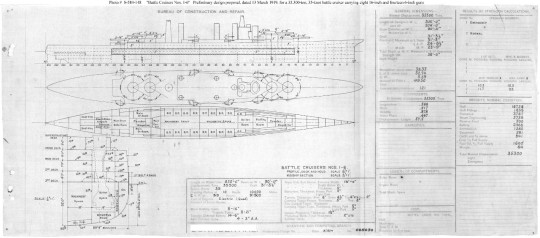

Completed on March 13, 1919, this plan provides:
Main battery: eight 16 inch guns in four twin turrets
Secondary battery: fourteen 6 inch guns
AA battery: four 3 inch guns
Toredo tubes: eight 21 inch tubes
Main belt armor: 5 inch
Machinery: Tubo-electric drive
Top speed: 35 knots
Waterline Length: 850 feet
Beam: 90 feet 11 inches
Normal displacement: 35,300 tons
Draft: 31 feet 3.5 inch
"This plan represents the third of four versions of the Constellation class design (Battle Cruiser # 1-6). This design was fully developed during July to November 1918 and provided four twin 16-inch gun turrets instead of two triple and two twin 14-inch gun turrets as provided in the earlier designs (see Photo # S-584-102 for the first design). This design underwent further major change during 1919 prior to start of construction. Ultimately only two were completed, as aircraft carriers Lexington (CV-2) and Saratoga (CV-3). The original document was a blueprint (white on dark blue). The original plan is in the 1911-1925 Spring Styles Book."
U.S. Naval History and Heritage Command: S-584-148
#Lexington Class#battlecruiser#Preliminary Design#Warship#ship#March#1919#united states navy#us navy#navy#usn#u.s. navy#my post
59 notes
·
View notes
Photo
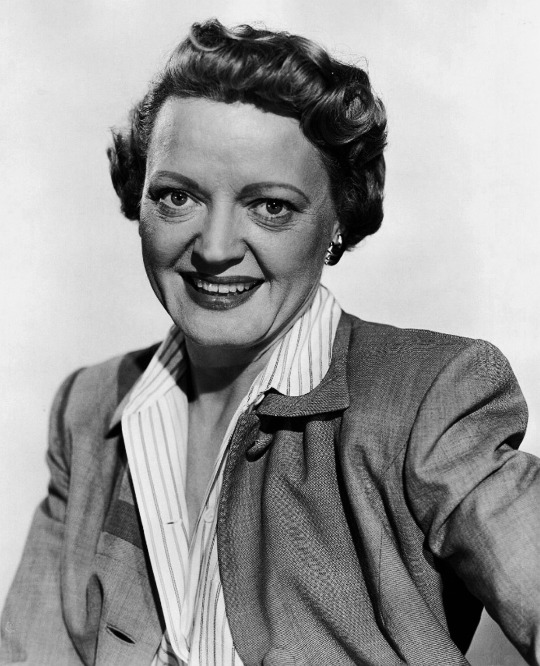
Character Actress
Vivi Janiss (born Vivian Audrey Jamison; May 29, 1911 – September 7, 1988) Film and television actress.
From 1952 to 1955, Janiss appeared in five episodes of Jack Webb's original version of the Dragnet police drama television series. From 1953 to 1957, she was cast in four episodes of the Schlitz Playhouse of Stars anthology series. From 1954 to 1959, Janiss appeared as Myrtle Davis in 11 episodes of Robert Young's Father Knows Best situation comedy series. From 1959 to 1962, she was cast in six episodes, none in the starring role, of the NBC Western series Wagon Train with Ward Bond and John McIntire.
In 1955, she played the historical Mary Todd Lincoln in "How Chance Made Lincoln President" in the anthology series TV Reader's Digest.
In 1957, Janiss joined Frank Ferguson as guest stars in the roles of Mabel and Frank Cliff in the episode "No Blaze of Glory" of Rod Cameron's syndicated series State Trooper. In 1959, Janiss was cast the role of Ella Westover in a second State Trooper episode, "Excitement at Milltown”. On December 4, 1959, Janiss was cast in the CBS anthology series Westinghouse Desilu Playhouse, hosted by Desi Arnaz in the episode "The Hanging Judge".
In its first season on the air, Janiss was cast with Everett Sloane in Rod Serling's The Twilight Zone episode "The Fever". Then on October 7, 1960, cast as Edna Castle, she joined Luther Adler in the role of her husband, pawnbroker Arthur Castle, in "The Man in the Bottle" episode of The Twilight Zone. Years later in 1977, Janiss played a minor role as a pawnshop proprietor in the episode "Second Chance" of James Garner's NBC detective series The Rockford Files.
Janiss appeared in many other series, too, three times on The F.B.I., starring Efrem Zimbalist Jr., and twice each on The Virginian and Ben Casey. She was cast once on Dick Powell's Zane Grey Theater, Lawman, Trackdown, Cimarron City, Route 66, Have Gun – Will Travel, Follow the Sun, Hennesey, Outlaws, Laramie, 87th Precinct, Perry Mason, Mannix, and The Streets of San Francisco.
After she and Bob Cummings divorced, Janiss wed actor John Larch. The couple appeared together on four television series, including the series premiere, "No Fat Cops", on October 3, 1961, of ABC's The New Breed, starring Leslie Nielsen. In this episode, Larch and Janiss were cast as John and Mary Clark. Earlier, the two had co-starred on November 23, 1959, as Johnny and Elsie in the episode "End of an Era" of NBC's Western series, Tales of Wells Fargo, starring Dale Robertson, and on May 23, 1960, as Isaiah and Rebecca Macabee in the episode "The Proud Earth" of the half-hour NBC anthology series Goodyear Theatre. On November 9, 1960, Larch and Janiss appeared as Ben and Sarah Harness in the episode "The Cathy Eckhart Story" of Wagon Train, with Susan Oliver in the starring role. Later, on December 19, 1968, the couple appeared again together in the 10th episode "Yesterday Died and Tomorrow Won't Be Born" of Jack Lord's CBS crime drama Hawaii Five-O.
Janiss' last roles were in the 1978 CBS television film First, You Cry, a story about breast cancer starring Mary Tyler Moore, and in two 1979 CBS series appearances on Barnaby Jones with Buddy Ebsen and House Calls, starring Wayne Rogers. (Wikipedia)
8 notes
·
View notes
Text
CHRONOLOGY OF AMERICAN RACE RIOTS AND RACIAL VIOLENCE p.3
1911
National Urban League founded.
1914
Marcus Garvey establishes the Universal Negro Improvement Association (UNIA).
November William Monroe Trotter confronts Woodrow Wilson in the White House over the president’s support for segregation in federal offices.
1915
Debut of the D.W. Griffith film, The Birth of a Nation.
Failure of African American lawsuit against the U.S. Treasury Department for compensation for labor rendered under slavery.
CHRONOLOGY OF AMERICAN RACE RIOTS AND RACIAL VIOLENCE lvii
November William J. Simmons refounds the Ku Klux Klan at Stone Mountain in Georgia.
1916
Madison Grant publishes The Passing of the Great Race, detailing his drastic prescription—including eugenics—to save the white race from being overwhelmed by ‘‘darker races.’’
May Jesse Washington, a seventeen-year-old illiterate black farm hand, is lynched in Waco, Texas.
1917
May–July East St. Louis, Illinois, riots.
August Houston, Texas, mutiny of black soldiers at Camp Logan.
1918
After protesting the lynching of her husband, Mary Turner, then eight months pregnant, is herself brutally lynched in Valdosta, Georgia.
April Congressman Leonidas C. Dyer of Missouri introduces an anti-lynching bill into Congress (the Dyer Anti-Lynching Bill is defeated in 1922).
July Chester and Philadelphia, Pennsylvania, riots.
1919
NAACP publishes Thirty Years of Lynching in the United States: 1889–1918 by Martha Gruening and Helen Boardman.
May Charleston, South Carolina, riot.
Summer Known as ‘‘Red Summer’’ because of the great number of people killed in various race riots around the country.
July Longview, Texas, riot.
Publication of Claude McKay’s sonnet, ‘‘If We Must Die.’’
Chicago, Illinois, riot.
Washington, D.C., riot.
August Knoxville, Tennessee, riot.
September Omaha, Nebraska, riot.
September–
October
Elaine, Arkansas, riot.
1920
Founding of the Commission on Interracial Cooperation, a major interracial reform organization in the South.
1921
April Tulsa, Oklahoma, riot.
1922
Anti-Lynching Crusaders are formed to educate Americans about lynching and work for its elimination.
Chicago Commission on Race Relations issues its influential report on the 1919
Chicago riots.
lviii CHRONOLOGY OF AMERICAN RACE RIOTS AND RACIAL VIOLENCE
1923
January Rosewood, Florida, riot.
February U.S. Supreme Court decision in Moore v. Dempsey leads to eventual release of
twelve African Americans in Arkansas who were convicted in perfunctory mobdominated trials of killing five whites during the Elaine, Arkansas, riots of 1919.
1929
Publication of Walter White’s Rope and Faggot: A Biography of Judge Lynch.
1930
Nation of Islam (Black Muslims) is founded in Detroit, Michigan, by W.D. Fard.
Formation of the Association of Southern Women for the Prevention of Lynching, the first organization of white women opposed to lynching.
October Sainte Genevieve, Missouri, riot.
1931
Scottsboro Case occurs in Alabama; the case comprises a series of trials arising outof allegations that nine African American youths raped two white girls in Scottsboro,
Alabama.
1932
Supreme Court renders a decision in Powell v. Alabama, a case related to the Scottsboro, Alabama, incident of 1931.
1934
Elijah Muhammad assumes leadership of the Nation of Islam.
1935
March Harlem, New York, riot.
1936
First Lady Eleanor Roosevelt addresses the annual conventions of both the NAACP and National Urban League.
1939
Billie Holiday’s first performance of the anti-lynching song Strange Fruit occurs at Cafe´ Society, New York’s only integrated nightclub.
1941
Supreme Court decision in Mitchell v. United States spurs integration of first-class railway carriages.
1942
Congress of Racial Equality (CORE) is founded as the Committee of Racial Equality.
February Double V Campaign is launched to popularize the idea that blacks should fight for
freedom abroad to win freedom at home.
1943
May Mobile, Alabama, riot.
June Beaumont, Texas, riot.
June ‘‘Zoot Suit’’ riots in Los Angeles, California.
July Detroit, Michigan, riot.
August New York City (Harlem) riot.
1944
Publication of Karl Gunnar Myrdal’s An American Dilemma: The Negro Problem and Modern Democracy.
17 notes
·
View notes
Text




















Chevrolet officially entered the automobile market on November 3, 1911, in competition with the Ford Model T.
#Chevrolet#automobile market#3 November 1911#anniversary#US history#engineering#Torrington Cruise Night#original photography#travel#vacation#USA#Bowling Green#National Corvette Museum#Chevrolet Corvette#Chevy#Chevrolet Tahoe#Chevrolet Suburban#Chevrolet Camaro#Chevrolet Nova#Chevrolet Impala#outdoors#indoors#tourist attraction#landmark#Wyoming#Kentucky#California#South Lake Tahoe#Yountville
1 note
·
View note
Text

— November 3, 1911 / Franz Kafka diaries
158 notes
·
View notes
Text
Louise Kirkby Lunn - O don fatale [Don Carlo] - 1911
Louise Kirkby Lunn (1873 – 1930) was a leading contralto who had trained in her native Manchester and studied at the Royal College of Music in 1890 for three years. In 1895 she appeared in the first of Henry Wood’s Promenade concerts and then began her stage appearances, including small roles at Covent Garden. Then in 1896 she joined the Carl Rosa Opera Company as principal mezzo-soprano until her marriage in 1899 to William Pearson. In the 1901 census they are living at Hyde Park Mansions, with a year old son named Louis Kirkby and her aunt Anne living with them. They later lived in St Johns Wood Park. She sang many roles at Covent Garden during the first two decades of the 20th century and first appeared at the Bechstein (later Wigmore) Hall in 1902, giving her first full recital (with pianist Percy Pitt) on 3 November 1906, followed by many others in subsequent years when her husband was manager there.
She also performed in a charity concert in aid of the Italian Hospital in London in July 1906 and was awarded the Gold Medal of the Royal Philharmonic Society for her rare combination of personal artistic achievement added to a richly endowed nature. She was famous for her Delilah in Samson and Delilah, and for Gluck’s Orfeo. In 1909, she sang Elgar’s Sea Pictures with Elgar conducting the orchestra. She often toured Europe and made trips to New York and Australia. In 1922 she made her farewell to Covent Garden with her celebrated part of Kundry but continued for some years to appear in concerts and recitals. Sir Henry Wood said she was a singer with a glorious voice and an even tone throughout a compass of well over two octaves, a singer with whom I never found fault in so much as a quaver all the years I worked with her, and who never sang out of tune.
#classical music#opera#music history#bel canto#composer#classical composer#aria#classical studies#chest voice#maestro#Louise Kirkby Lunn#O don fatale#Don Carlo#Giuseppe Verdi#contralto#dramatic mezzo-soprano#mezzo-soprano#coloratura contralto#Royal Opera House#Covent Garden#Metropolitan Opera#Met#Royal College of Music#Royal Choral Society#Royal Albert Hall#classical musician#classical musicians#classical history#history of music#historian of music
2 notes
·
View notes
Text
The Many Shows of Chevrolet
I don’t give two hoots in hell about cars or car companies, but it just so happens that Chevrolet did sponsor some great radio and television variety shows and that IS our bailiwick, so we thought we’d shine our headlights on the company a minute.
Some sources say that the Chevrolet Motor Company was founded on November 3, 1911; the incorporation papers were filed on November 8. Both may be true…

View On WordPress
6 notes
·
View notes
Photo







November 5th 1877 saw the opening of the original Mitchell Library, Glasgow, now the largest public reference library in Europe.
When Stephen Mitchell - a wealthy tobacco merchant in Glasgow - died in 1874 he left the bulk of his estate “ to the Town Council to form the nucleus…of a large Public Library in Glasgow… Books on all subjects not immoral shall be freely admitted … and no book shall be regarded as immoral which simply controverts present opinions on political or religious questions.”
The original Mitchell Library, which opened on this day in 1877, in a temporary location at Ingram Street in the city centre but by the mid 1880s was beginning to outgrow its location. New accommodation became available when the Town Council moved into the new City Chambers and the Library took over premises in Miller Street. However, The Library soon encountered problems with lack of space for both books and readers. The situation became more problematic after the Library received a substantial bequest of rare and valuable items from the late Robert Jeffrey in 1902. In 1904, the Corporation decided to erect a building which would allow for the continued growth of The Library and purchased a site with frontage on North Street. An architectural competition was held and plans by William B. Whitie were chosen. These original plans were much amended before final approval was given.
The new building was opened on 16th October 1911 by the 5th Earl of Rosebery. At that time it provided accommodation for over 400,000 volumes. This building covered two thirds of the site which had been purchased in 1904 at a cost of £14,212. The money to buy the land came from the bequest of Stephen Mitchell. Andrew Carnegie provided half of the building’s construction costs which totalled £52,000.
There was stuttering progress with the development of the remainder of the site which began in March 1939. Work was suspended by Government order in January 1942 owing to the continuing hostilities of the Second World War. Construction resumed in May 1949 and the first phase was formally opened by the 6th Earl of Rosebery on 9th April 1953. More storage space was created in the next decade, but it was an unfortunate fire in nearby premises which really led to an enormous expansion of the library’s capacity.
The loss of the St Andrews Halls by fire in October 1962 created space behind the library to build a huge extension which opened in June 1981. This extension seamlessly incorporated the colonnaded façade of the Halls (left) with the new structure which was clad with matching stone quarried in the North of Scotland. Following an extensive refurbishment completed in 2007 the main entrance to the library and the Mitchell Theatre is now in Granville Street, making better use of this magnificent frontage.
The various departments currently have a combined shelf space for over 4 million books, much of which is accommodated in 3 levels of basement stores. The additional public areas include a conference suite, theatre, exhibition space and a large area providing internet access.
The library is a important resource for researchers from throughout Scotland visiting the Glasgow Room and Strathclyde Regional Archives, which are invaluable for students of local history.
The third pic shows Andrew Carnegie laying the foundation stone for the Mitchell library, 17th September 1907.
14 notes
·
View notes
Text

I posted 242 times in 2022
That's 62 more posts than 2021!
198 posts created (82%)
44 posts reblogged (18%)
Blogs I reblogged the most:
@twentiethcenturysims
@antiquatedplumbobs
@ivyandink
@happylifesims
@anachrosims
I tagged 212 of my posts in 2022
Only 12% of my posts had no tags
#ts4 decades challenge - 144 posts
#sims 4 historical - 141 posts
#ts4 historical - 140 posts
#sims4 - 131 posts
#sims 4 - 128 posts
#sims 4 screenshots - 125 posts
#decades challenge - 117 posts
#waldrop records - 115 posts
#waldrop gen 3 - 98 posts
#waldrop gen 2 - 86 posts
Longest Tag: 44 characters
#wanted to build a small french inspired town
My Top Posts in 2022:
#5
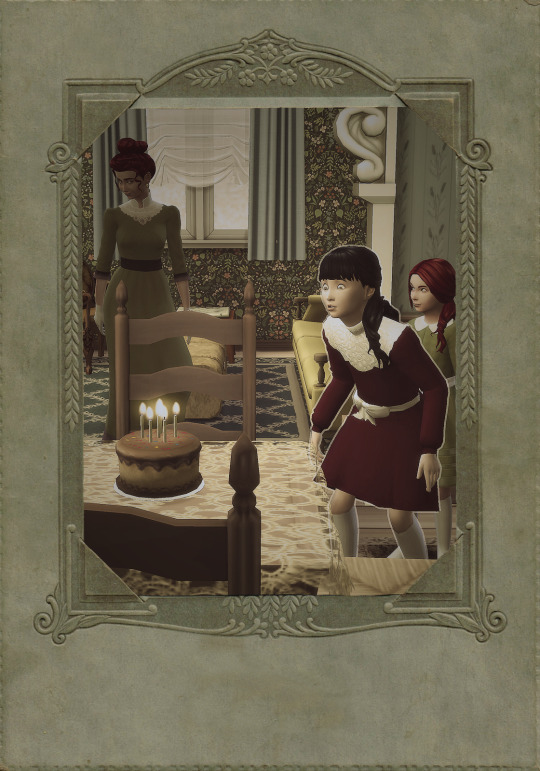

May 16, 1910
Dearest sister,
I hope things are well there. We celebrated Margaret's thirteenth birthday a few days ago. Hard to believe the two oldest are teenagers now. Daisy took her shopping for more appropriate frocks and I can't believe how grown up she looks.
See the full post
15 notes - Posted February 20, 2022
#4


March 3, 1918
**excerpt from Margaret's private diary**
The horror of war is something I never want to see again. There are so many men who made the voyage back to Simerica only to die at the hands of infection or influenza. It's all I can do to keep my hands from being rubbed raw from all the handwashing I do.
We have a new patient. We didn't think he'd make it through the first night, but he did. He'd been caught in an attack with mustard gas and then a nearby shell threw flaming debris at him. He's more bandage than skin at this point. I sing to him. I sing to all the patients. it soothes them, and keeps me in practice. He woke one night while I was tending him, and I had the unfortunate task of telling him that he was never going to regain the sight in his left eye. I told him that he would heal and that the doctors were hopeful that the scarring wouldn't be too bad. He asked that we pray, so I grabbed his hand and said a small, quick prayer with him.
He then introduced himself as Otho Petrie Roper and that his family immigrated here before he was born from Finland. He tells me stories that his mother and father told him. He's quite engaging. I feel so terribly that he's in such pain as he heals, but I'm glad for the chance to lessen his pain with my company and care.
15 notes - Posted March 14, 2022
#3

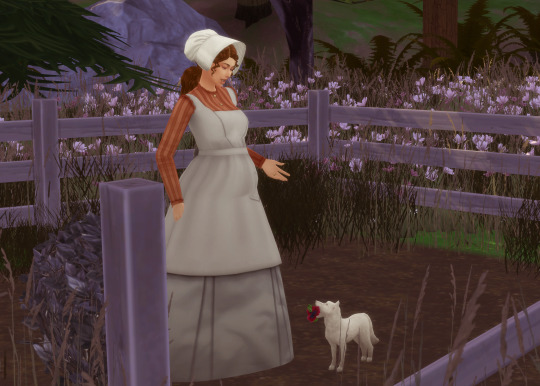
See the full post
15 notes - Posted November 16, 2022
#2
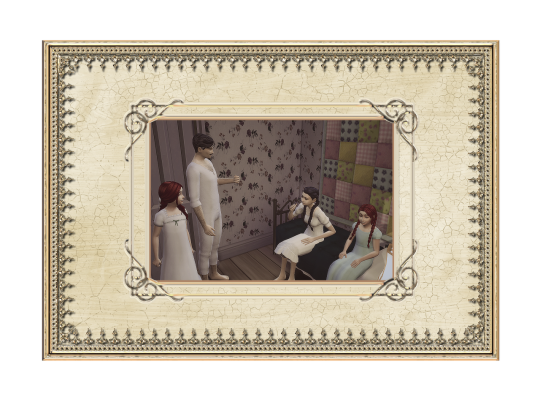

January 14, 1911
I had to tell the girls that their mother would need more help over the next few weeks. I don't know rightly know what happened, Daisy is a competant cook and knows her way around the kitchen but she'd been complaining that the stove was acting funny of late. I should have paid more heed to what she was saying. The dadgum thing caught fire and in her attempts to put it out Daisy was burned. Not badly but her arm is burned. I don't know how badly she'll scar, but that's not even the worst of it. She was with child. We had no idea. She didn't even think she could get pregnant anymore; it's been so long since Josephine was born. My poor Daisy has had such terrible bleeding that the doctor put her on bedrest for the next week.
19 notes - Posted February 23, 2022
My #1 post of 2022
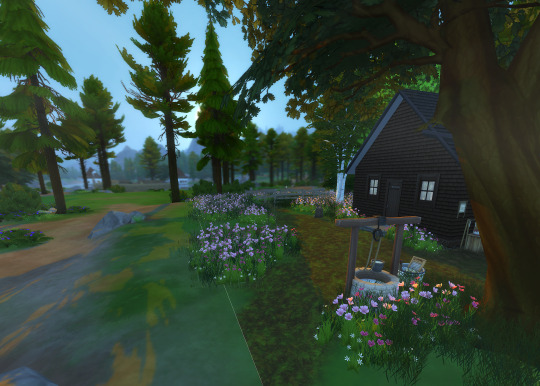

See the full post
27 notes - Posted November 11, 2022
Get your Tumblr 2022 Year in Review →
6 notes
·
View notes